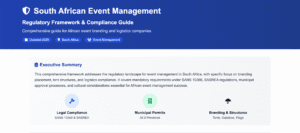Event management is a challenging but rewarding profession, and with the right strategies and skills, you can excel in planning and executing successful events. Whether you are organizing a small corporate gathering or a large-scale conference, there are certain key tips and techniques that can help you achieve success in the industry.
First and foremost, organization is crucial in event management. From creating detailed plans and documentation to being flexible enough to adapt to sudden changes, staying organized is essential for delivering seamless and memorable events.
Another important aspect is effective communication and networking. Building strong relationships with clients, vendors, and sponsors is vital for success in the industry. Being able to communicate clearly and negotiate effectively can help you secure deals and ensure the smooth execution of your events.
Problem-solving skills and the ability to remain calm under pressure are also crucial in event management. Unexpected challenges are bound to arise, and your ability to handle them with composure and find practical solutions will set you apart from the rest.
In addition, creativity is key in event planning. Bringing unique and innovative ideas to life can capture the attention of attendees and leave a lasting impression. Likewise, multitasking is essential to handle the various tasks and responsibilities that come with organizing events.
Leadership and teamwork are also essential traits for success in event management. Being able to guide and collaborate with your team effectively will ensure that everyone is working towards a common goal and that events are executed flawlessly.
Starting an event planning business requires careful consideration of various aspects. This includes staying up-to-date with technology, creating a business plan, defining your services, understanding the market and competitors, and addressing legal and tax implications.
- Stay organized and be adaptable to sudden changes
- Effective communication and networking skills are essential
- Problem-solving skills and remaining calm under pressure are crucial
- Bring creativity and innovation to your events
- Develop leadership and teamwork abilities
Key Skills for Successful Event Management
Successful event management requires a combination of key skills and best practices that ensure seamless coordination and execution. As an event manager, you need to possess a diverse range of abilities to handle all aspects of planning and organizing events. Let’s explore some of the crucial skills that contribute to your success in event management.
Organization and Adaptability
One of the fundamental skills for event managers is exceptional organizational abilities. You must be able to create detailed plans, timelines, and budgets to ensure everything runs smoothly. Additionally, the ability to adapt to unexpected changes is crucial. Events are dynamic, and being flexible allows you to respond effectively and find solutions when faced with challenges.
Effective Communication and Networking
Clear and concise communication is vital in building strong relationships with clients, vendors, and sponsors. You should be able to convey your ideas, needs, and expectations effectively, while also actively listening to others. Networking is another valuable skill that helps you connect with industry professionals, potential clients, and collaborators to expand your opportunities and stay abreast of the latest trends and opportunities.
Problem-Solving and Remaining Calm Under Pressure
Event management often involves unexpected issues and last-minute changes. Being able to think quickly on your feet and find solutions is essential. Remaining calm under pressure allows you to make sound decisions and maintain a positive and composed demeanor, reassuring both clients and team members that you have everything under control.
Negotiation and Budgeting Skills
Successful event planning requires effective negotiation skills to secure the best deals with vendors and suppliers. It’s important to be confident in your ability to negotiate contracts, pricing, and terms to ensure the best outcomes for your clients. In addition, strong budgeting skills are crucial to control expenses and maximize resources, enabling you to deliver exceptional events while staying within financial constraints.
By honing these key skills, you will be well-equipped to thrive in the fast-paced and dynamic world of event management. Remember, practice makes perfect, so continue to develop your abilities and seek opportunities that allow you to apply and showcase your skills.
Organization and Adaptability
A well-organized event manager is better equipped to handle the complexities of event planning and adapt to last-minute adjustments. Organization is the foundation of successful event management. By having detailed plans and documentation, you can keep track of every aspect of the event, from logistics to scheduling. This ensures that nothing falls through the cracks and allows you to stay on top of deadlines and deliverables.
Furthermore, being adaptable is essential in the fast-paced world of event management. No matter how well you plan, there will always be unexpected changes or challenges that arise. By remaining flexible and open-minded, you can quickly adjust your plans and find creative solutions to any problems that arise. This ability to adapt not only keeps your events running smoothly but also demonstrates your professionalism and reliability to clients and attendees.
Event Management Success Stories
“When we had to change the venue at the last minute due to unforeseen circumstances, our event manager seamlessly coordinated with multiple vendors and ensured the event was a huge success. Their organizational skills and adaptability were truly impressive.” – John Smith, Client
| Benefits of Organization and Adaptability | Skills |
|---|---|
| Efficient execution of event plans | Organizational skills |
| Ability to handle last-minute changes | Adaptability |
| Improved client satisfaction | Problem-solving |
By prioritizing organization and adaptability, event managers can navigate the complexities of event planning with ease. These skills enable you to deliver successful events, handle unexpected challenges, and exceed client expectations. Remember, success stories are built on a solid foundation of effective organization and the ability to adapt to any situation that comes your way.

Successful event managers excel in their ability to communicate effectively and build strong networks within the industry. In order to create memorable events and ensure client satisfaction, event managers must have excellent interpersonal and communication skills. They need to be able to clearly articulate their ideas and vision to clients and vendors, as well as actively listen to feedback and incorporate it into their planning.
Building a strong network is also essential for event managers. By establishing relationships with key players in the industry, such as suppliers, venues, and sponsors, event managers can tap into valuable resources and opportunities. Networking allows for collaborations, partnerships, and referrals, which can help enhance the success and reputation of an event planning business.
Additionally, event managers should be adept at leveraging various communication channels, both online and offline, to promote their events and reach a wider audience. Social media platforms, email marketing, and face-to-face interactions at industry events and conferences can all contribute to effective communication and networking.
Event Management Success Stories and Industry Insights
“Networking has been instrumental in my success as an event manager. By attending industry events and actively engaging with industry professionals, I have been able to form valuable connections and gain access to resources that have greatly benefited my events. It’s not just about who you know, but also how you build and nurture those relationships.” – Jane, Event Manager at XYZ Events
According to recent industry insights, event managers who prioritize effective communication and networking are more likely to secure prestigious clients and high-profile events. They are able to leverage their networks to access exclusive opportunities and stay ahead of industry trends. Furthermore, building strong relationships with clients and vendors through open and transparent communication fosters trust and long-lasting partnerships.

| Top Tips for Effective Communication and Networking |
|---|
| 1. Actively listen to your clients and stakeholders to understand their needs and expectations. |
| 2. Clearly and concisely communicate your event vision and plans to clients and vendors. |
| 3. Attend industry events, conferences, and networking functions to connect with industry professionals. |
| 4. Utilize social media and online platforms to promote your events and engage with your audience. |
| 5. Be responsive and timely in your communication, addressing any concerns or inquiries promptly. |
By consistently honing your communication and networking skills, you can position yourself as a standout event manager in the industry. Remember, effective communication and strong networks are key ingredients for success in event management.
Problem-Solving and Remaining Calm Under Pressure
Event managers who can think critically, solve problems efficiently, and remain calm under pressure are more likely to achieve success. In the event management industry, unexpected challenges and last-minute changes are commonplace, and it is crucial for event managers to have strong problem-solving skills and the ability to adapt on the spot. Whether it’s a sudden change in the venue, a technical glitch, or a logistical issue, being able to think quickly and find effective solutions is essential for ensuring the seamless execution of an event.
One effective strategy for problem-solving is to break down the issue into smaller, manageable tasks. By identifying the root cause and addressing each component systematically, event managers can tackle challenges efficiently. Additionally, having a backup plan or contingency measures in place can help alleviate stress and mitigate potential problems.
Remaining calm under pressure is equally important. As an event manager, being able to stay composed and maintain a sense of calmness during high-stress situations can inspire confidence in your team and clients. Taking deep breaths, practicing mindfulness, and seeking support from your team can all contribute to a calm and focused mindset. Remember, your ability to handle pressure effectively can make a significant difference in the success of an event.
As the event industry continues to evolve, it is crucial for event managers to stay resilient and adaptable. Being proactive, flexible, and agile in your problem-solving approach will not only help ensure the success of your events but also build a reputation as a reliable and trusted event management professional.
Table: Tips for Problem-Solving and Remaining Calm Under Pressure
| Tips for Problem-Solving | Tips for Remaining Calm Under Pressure |
|---|---|
| Break down the issue into smaller tasks | Take deep breaths and practice mindfulness |
| Seek input and suggestions from your team | Delegate tasks and responsibilities |
| Have contingency plans in place | Stay organized and prioritize tasks |
| Stay calm and composed | Communicate effectively with your team |
| Learn from past experiences | Ask for support from your team |

Negotiation and Budgeting Skills
Successful event managers possess strong negotiation skills and are adept at budgeting to ensure profitable and financially sustainable events. The ability to negotiate effectively allows event managers to secure favorable deals with vendors, sponsors, and other stakeholders. By leveraging their communication and persuasive skills, they can obtain competitive pricing, discounts, and additional services that contribute to the overall success of the event. Moreover, skilled negotiators are capable of finding creative solutions to conflicts and reaching mutually beneficial agreements.
Budgeting is another crucial skill for event managers as it allows them to allocate financial resources wisely. They must carefully assess the costs associated with venue rentals, catering, marketing, entertainment, and other event essentials. By creating detailed budgets and closely monitoring expenditures, event managers can ensure that they stay within financial constraints and avoid overspending. Effective budgeting also enables them to maximize their return on investment and deliver high-quality events while staying within their clients’ budgetary limits.
To illustrate the importance of negotiation and budgeting skills in event management, consider the following success story:
“We were tasked with organizing a large corporate conference within a limited budget. Through strategic negotiation with the venue, we secured a discounted rental fee and additional complimentary services such as audio-visual equipment. By carefully budgeting each aspect of the event, we were able to allocate funds to prioritize key elements such as catering, guest speakers, and interactive technology. The event received rave reviews from attendees and generated positive feedback from our client, who commended our ability to deliver an exceptional event while adhering to budgetary constraints.”
Table: Essential Elements of Successful Negotiation and Budgeting
| Negotiation | Budgeting |
|---|---|
| Strong communication skills | Thorough cost analysis |
| Ability to build relationships | Detailed budget planning |
| Problem-solving mindset | Effective expenditure tracking |
| Flexibility and adaptability | Contingency planning |
| Win-win negotiation approach | Regular financial reporting |
By honing their negotiation and budgeting skills, event managers can navigate the complexities of the industry, secure successful outcomes, and ensure the financial viability of their events. These skills are essential for achieving event management success and establishing a reputation for delivering exceptional experiences.

Event managers who can handle multiple tasks simultaneously and bring innovative ideas to life are more likely to achieve success. In the fast-paced world of event management, the ability to juggle various responsibilities and remain organized is essential. Multitasking allows event managers to oversee different aspects of an event, from logistics to marketing, without compromising quality.
Furthermore, creativity plays a vital role in setting events apart from the competition. Bringing fresh and unique concepts to the table can captivate attendees and leave a lasting impression. Whether it’s designing captivating themes, incorporating interactive elements, or curating one-of-a-kind experiences, event managers who think outside the box have a higher chance of delivering memorable events that resonate with their target audience.
Combining multitasking capabilities with a creative mindset can yield impressive results. By efficiently managing time and resources, event managers can allocate sufficient attention to each task while also exploring innovative ideas that will enhance the overall event experience.

| Multitasking and Creativity | Event Management Benefits |
|---|---|
| Efficient task management | Smooth execution of various event components |
| Adaptability to changing circumstances | Ability to overcome unexpected challenges |
| Unique event concepts | Memorable experiences that set events apart |
| Improved attendee satisfaction | Higher engagement and positive feedback |
Key Points:
- Multitasking allows event managers to handle various responsibilities simultaneously.
- Creative thinking sets events apart from competitors and leaves a lasting impression on attendees.
- Efficient multitasking and creativity can lead to efficient task management, adaptability, unique event concepts, and improved attendee satisfaction.
Leadership and Teamwork
Successful event managers possess strong leadership skills and excel in fostering teamwork to execute flawlessly coordinated events. They understand the importance of guiding and motivating their team members to achieve common goals and deliver exceptional experiences for attendees.
Leadership in event management involves effective decision-making, delegation of tasks, and clear communication to ensure that everyone is on the same page. Event managers need to inspire their team members, provide guidance when issues arise, and lead by example to create a positive and productive work environment.
Teamwork is equally vital in event management, as it allows for collaboration and synergy among team members. When everyone works together towards a common objective, the result is a well-coordinated event that runs smoothly. Encouraging open communication and fostering a supportive team culture fosters creativity and innovation, making it easier to overcome challenges and deliver outstanding results.
Benefits of Strong Leadership and Teamwork
Effective leadership and teamwork have numerous benefits in event management. Firstly, it improves productivity by ensuring that tasks are assigned and completed efficiently. Strong leadership also enhances team morale and motivation, leading to increased job satisfaction and higher levels of performance.
| Benefits of Strong Leadership and Teamwork |
|---|
| Improved productivity |
| Enhanced team morale and motivation |
| Better problem-solving and decision-making |
| Effective delegation and task management |
| Increased innovation and creativity |
| Greater ability to adapt to changes |
Furthermore, strong leadership and teamwork contribute to better problem-solving and decision-making. By leveraging the diverse skills and perspectives of team members, event managers can come up with innovative solutions and make informed choices that lead to successful outcomes.
In addition, effective delegation and task management enable event managers to distribute responsibilities appropriately, ensuring that each team member plays to their strengths and contributes to the overall success of the event. This also fosters a sense of ownership and accountability among team members.
Moreover, a culture of strong leadership and teamwork encourages creativity and innovation. When individuals feel supported and encouraged to share their ideas, it leads to fresh perspectives and unique event concepts that can set an event apart from the competition.
Lastly, successful event managers with strong leadership and teamwork skills are better equipped to adapt to changes and overcome obstacles. By working together, they can navigate unexpected challenges and adjust plans as needed, ensuring that the event remains on track and meets the desired objectives.

| Key Considerations for Starting an Event Planning Business |
|---|
If you aspire to start your own event planning business, there are several key factors to consider for long-term success. Firstly, it is important to stay up-to-date with the latest event management trends and technology. This will help you deliver innovative and cutting-edge experiences to your clients. Embracing digital tools and platforms can streamline your operations, enhance communication, and improve efficiency throughout the event planning process. |
Next, creating a comprehensive business plan is essential. It will serve as a roadmap for your business, outlining your objectives, target market, pricing strategy, marketing plan, and financial projections. A well-defined business plan will help you stay focused, attract investors if needed, and measure your progress against set goals. |
| Image: Event Planning Business |

|
Setting a marketing budget is crucial to promote your services and attract clients. This can include investing in online advertising, social media campaigns, creating a professional website, and attending industry events to network with potential clients and partners. A well-executed marketing plan will help you establish a strong brand presence and gain a competitive edge in the event management industry. |
Clearly defining your services is important to showcase your expertise and differentiate yourself from competitors. Identify your niche and specialize in specific types of events, such as corporate conferences, weddings, or music festivals. This will enable you to build a strong reputation and become a go-to event planner in your chosen field. |
Developing a refined pitch is essential to attract potential clients and secure business opportunities. Craft a compelling narrative that highlights your unique value proposition and showcases your past successes. Tailor your pitch to the specific needs and objectives of each client, demonstrating your ability to deliver exceptional events that exceed expectations. |
Understanding the market and your competitors is crucial for sustainable growth. Conduct thorough research to identify industry trends, target audience preferences, and competitor strategies. This knowledge will enable you to position your business effectively and capitalize on untapped opportunities in the event management industry. |
Lastly, it is important to address the legal and tax implications of starting an event planning business. Consult with legal and financial professionals to ensure compliance with regulations, obtain necessary licenses and permits, and establish appropriate financial systems. |
Conclusion
By implementing the right skills, strategies, and best practices, you can enhance your chances of achieving success in the dynamic world of event management.
To succeed in event management, it is crucial to prioritize organization and adaptability. Having detailed plans and documentation, coupled with the ability to quickly adapt to sudden changes, will ensure smooth event execution. Additionally, actively seeking feedback from attendees and staff can provide valuable insights to improve future events and enhance attendee satisfaction.
Remaining calm under pressure and possessing strong problem-solving skills are also critical. Events can be unpredictable, and being able to think on your feet and find solutions efficiently will help you navigate any challenges that arise.
Effective communication and networking skills are essential for building relationships within the industry. By cultivating strong connections with clients, vendors, and sponsors, you can foster collaboration and ensure the success of your events. Furthermore, negotiation and budgeting skills are necessary for securing beneficial deals and efficiently managing expenses, maximizing the profitability of your projects.
To excel in event management, it is important to be a multitasker, capable of handling multiple tasks and events simultaneously, while still delivering high-quality outcomes. Creativity is also key, as it allows you to bring fresh and innovative ideas to life, making your events memorable and captivating.
Leadership skills are necessary to effectively work with teams and ensure seamless event execution. By inspiring your team and fostering a collaborative environment, you can create exceptional experiences for clients and attendees alike.
In addition to these skills and strategies, it is essential to have a genuine passion for event planning. This passion will fuel your drive to continuously learn and improve, keeping you at the forefront of the industry. Staying up-to-date with technology, creating a comprehensive business plan, setting a marketing budget, clearly defining your services, developing a refined pitch, understanding the market and competitors, and addressing legal and tax implications are all crucial aspects of starting and running a successful event planning business.
With the right combination of skills, dedication, and a strong business foundation, you can forge a successful path in event management, creating unforgettable experiences and lasting memories for your clients and attendees.
FAQ
How do you succeed in event management?
To succeed in event management, it is important to possess key skills such as organization, effective communication, problem-solving, negotiation, multitasking, creativity, leadership, and passion. Additionally, staying up-to-date with technology, creating a business plan, setting a marketing budget, understanding the market, and addressing legal and tax implications are crucial for running a successful event planning business.
What are the key skills for successful event management?
The key skills for successful event management include organization, adaptability, effective communication, networking, problem-solving, remaining calm under pressure, negotiation, budgeting, multitasking, creativity, and leadership.
Why is organization and adaptability important in event management?
Organization and adaptability are important in event management because they allow event managers to have detailed plans, documentation, and the flexibility to adapt to sudden changes, ensuring successful event execution.
Why is effective communication and networking essential in event management?
Effective communication and networking are essential in event management because they help build relationships with clients, vendors, and sponsors, leading to successful collaborations and opportunities for future events.
Why are problem-solving and remaining calm under pressure important in event management?
Problem-solving and remaining calm under pressure are important in event management because they allow event managers to handle unexpected challenges and maintain composure in high-pressure situations, ensuring successful event outcomes.
Why are negotiation and budgeting skills necessary in event management?
Negotiation and budgeting skills are necessary in event management because they enable event managers to secure favorable deals with vendors and sponsors, as well as effectively control expenses, ensuring the financial success of events.
Why is multitasking and creativity important in event management?
Multitasking and creativity are important in event management because they allow event managers to handle multiple tasks and events simultaneously while bringing unique and innovative ideas to life, enhancing the overall event experience.
Why are leadership and teamwork crucial in event management?
Leadership and teamwork are crucial in event management because they facilitate effective coordination with teams, ensuring smooth event execution and seamless collaboration among event staff and stakeholders.
What are the key considerations for starting an event planning business?
The key considerations for starting an event planning business include staying up-to-date with technology, creating a business plan, setting a marketing budget, clearly defining services, developing a refined pitch, understanding the market and competitors, and addressing legal and tax implications.
What is the importance of acquiring the necessary skills and strategies for success in event management?
Acquiring the necessary skills and strategies for success in event management is crucial as they pave the way for effective event planning, execution, and overall business growth. These skills and strategies contribute to building a strong reputation, attracting clients, and achieving successful outcomes for events.
How Can Event Management Software Help in Achieving Success in Event Management?
Event management software benefits can greatly contribute to the success of event management. With its advanced features, such software can streamline various processes like event planning, registration, ticketing, and attendee management. It offers real-time data analysis and reporting, making it easier for organizers to make informed decisions. Additionally, the automation and integration capabilities of event management software save time and effort, resulting in increased efficiency and effectiveness.




